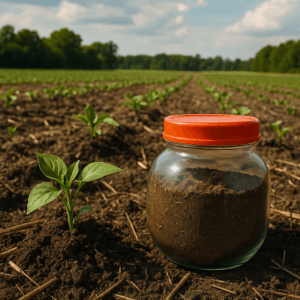**With one of the highest suicide rates globally, Suriname is taking action against paraquat, a toxic pesticide frequently used in self-harm incidents, as efforts grow for critical access restrictions.**
**Tragic Lethality: The Pesticide Crisis in Suriname**

**Tragic Lethality: The Pesticide Crisis in Suriname**
**Suriname confronts its alarming suicide rate linked to harmful pesticide paraquat, aiming for stricter accessibility regulations.**
The picturesque country of Suriname, located on the Atlantic coast of South America, faces a grim reality with one of the world’s highest suicide rates. A staggering proportion of these tragic deaths involves paraquat, a potent pesticide that can be fatal with just a small amount. This compound has become a symbol of despair in agricultural regions, where pesticides are often the chosen method for suicide.
Globally, pesticides account for over 100,000 suicide deaths each year, predominantly in rural and low- to middle-income countries. For many years, this public health crisis has not received the attention it urgently requires. However, a coalition of researchers and philanthropists is advocating for significant changes in accessibility to these dangerous chemicals, arguing for a crucial step that could reduce deaths remarkably.
Paraquat stands out as one of the most hazardous pesticides available, as it is rapidly absorbed into the body and has no known antidote. Even minimal exposure leads to severe consequences, including multi-organ failure, with fatalities potentially taking hours or days to occur. Dr. Esther Fong, an emergency physician at the busiest hospital in Suriname, shares a harrowing insight: “You see the death written on their foreheads,” she lamented, emphasizing the helplessness felt by medical professionals amidst such preventable tragedies.
Local educators and first responders echo this sentiment, noting that paraquat is alarmingly accessible in communities. “It’s very easy to find, and most every house has one bottle or more,” remarked Ashna Badrising, an English teacher at E.H. Cabell School. The community's tenacity for change reflects a growing awareness and urgency to address this pressing public health issue as advocates push for tighter regulations to curtail the catastrophic impact of paraquat in Suriname.
Globally, pesticides account for over 100,000 suicide deaths each year, predominantly in rural and low- to middle-income countries. For many years, this public health crisis has not received the attention it urgently requires. However, a coalition of researchers and philanthropists is advocating for significant changes in accessibility to these dangerous chemicals, arguing for a crucial step that could reduce deaths remarkably.
Paraquat stands out as one of the most hazardous pesticides available, as it is rapidly absorbed into the body and has no known antidote. Even minimal exposure leads to severe consequences, including multi-organ failure, with fatalities potentially taking hours or days to occur. Dr. Esther Fong, an emergency physician at the busiest hospital in Suriname, shares a harrowing insight: “You see the death written on their foreheads,” she lamented, emphasizing the helplessness felt by medical professionals amidst such preventable tragedies.
Local educators and first responders echo this sentiment, noting that paraquat is alarmingly accessible in communities. “It’s very easy to find, and most every house has one bottle or more,” remarked Ashna Badrising, an English teacher at E.H. Cabell School. The community's tenacity for change reflects a growing awareness and urgency to address this pressing public health issue as advocates push for tighter regulations to curtail the catastrophic impact of paraquat in Suriname.





















